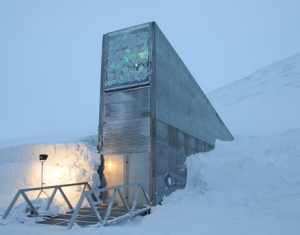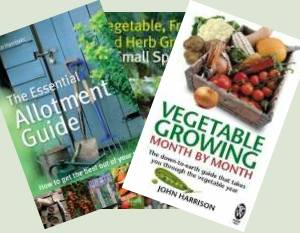One of the reasons the Irish Potato Famine was so devastating was that they only grew one variety, which was particularly susceptible to blight. Nowadays we are fortunate to have access to many different varieties, hundreds in fact, some of which are resistant to the disease.
However blight, like the flu, can mutate and who knows for how long our blight resistant varieties will be immune to the problem? Or, for that matter, when a new disease might appear that destroys the most important non-cereal crop in the world?
The only real hope in those circumstances may be to find a variety that has the right gene to resist the disease. But what if not one of the hundreds we have here now can’t help? Then we are up the proverbial creek without a paddle.
The potato is a south American crop originally from the Andes region of Peru and there they have around 4,000 varieties. Ten times the chance of finding a solution to a new variety of blight or a new disease.
Just as in the UK, older varieties can be lost as newer, more productive cultivars displace them. So we might find in ten or fifty years time that the magic bullet gene has been lost.
The same scenario applies to other plants as well – from chilli peppers to the cabbage family. So it’s good to know that there is a huge long term storage facility up in the artic circle where different varieties of seeds and plants are safely stored for posterity against anything from a disease to a global environmental catastrophe.
Svalbard Global Seed Vault
This seed vault, the Svalbard Global Seed Vault located on the Norwegian island of Spitsbergen in the arctic circle (nice and cold) opened in 2008 with an initial stock of 100 million seeds from 100 different countries, is a fantastic insurance policy for us. Seeing it extended to the important potato crop means we insure our staple vegetable.
Initially it is intended to send 1,500 varieties from the Cusco Potato Park in Peru. The Potato Park was established by six indigenous communities to protect biodiversity and ensure food security for communities in the region.
The varieties at the Park include every imaginable shape, size and color—ranging from white to black through red, yellow and purple. Some have particular nutritional or food values—like the red moro boli, which is high in antioxidants, or the long, banana-shaped ttalaco, appropriate for distillation.
Three sets of the seed will be produced. One set will be used by the Potato Park to develop climate-ready varieties of the native potatoes, which are increasingly threatened by rapid changes in weather patterns. The second set will be stored at the CIP genebank in Lima, and the third will be shipped and stored in the Seed Vault.
Further information on the vault is available on the Norwegian website (in English) here.





What a fantastic project. I had no idea it existed, like most people I guess, but at least it means that someone is actually thinking about the future of humans on the planet.
Pity really as the best that could happen to this planets survival is our removal as a species, from a conservationists point of view that is.
But if that were to happen how would those seeds ever get out into the wild and survive.
There is more to this than meets the eye, its about control, does Monsanto have anything to do with the seed banking? It ties in with Codex Alimentarius (food code) which is an international organisation, who considers GM Food to be classed as “novelty food”. They are the ones who control what goes into our food globally, forcing through legislation. Oh and the controlling partners are often scientists working for the big companies such as Monsanto, the whole Food Code legislations stinks, it’s been around since 1963.
Another tie in is the heritage seed banks, which can not be sold because listing them on EU lists costs money. Most of those varieties are not acceptable to the public according to the supermarkets as they are not of the right shape or size or have too much variability in those areas. Like tomatoes “grown for Flavour” why else would you grow them, shape, size is irreverent ask any woman. It is satisfaction we are all after in the…..end.
There is a lot to be said for those of us that grow our own and those who steer away from F1 hybrids, which ties you in to buying fresh seeds every time you wish to grow that variety, sterility in part of the system means seed collecting is no good, again control and Monsanto owns most of the seed companies globally, if not directly then the major seed growers who supply even the likes of Marshalls in the UK.
It’s much more complex than we are lead to believe, however seed banking is a good idea given what is round the corner for the next 1,000 years or more with man made climate change.
What is more frightening is that we are now directly changing evolution/natural selection through our activities. Our activities always put the natural environment as second on the list, our priorities over-ride the very thing that allows us to exist. When the natural environment should be our first priority.
Svalbard is completely funded by the Norwegian government. GM is a whole different issue – in my opinion a technology like nuclear power, great promise and great risk.